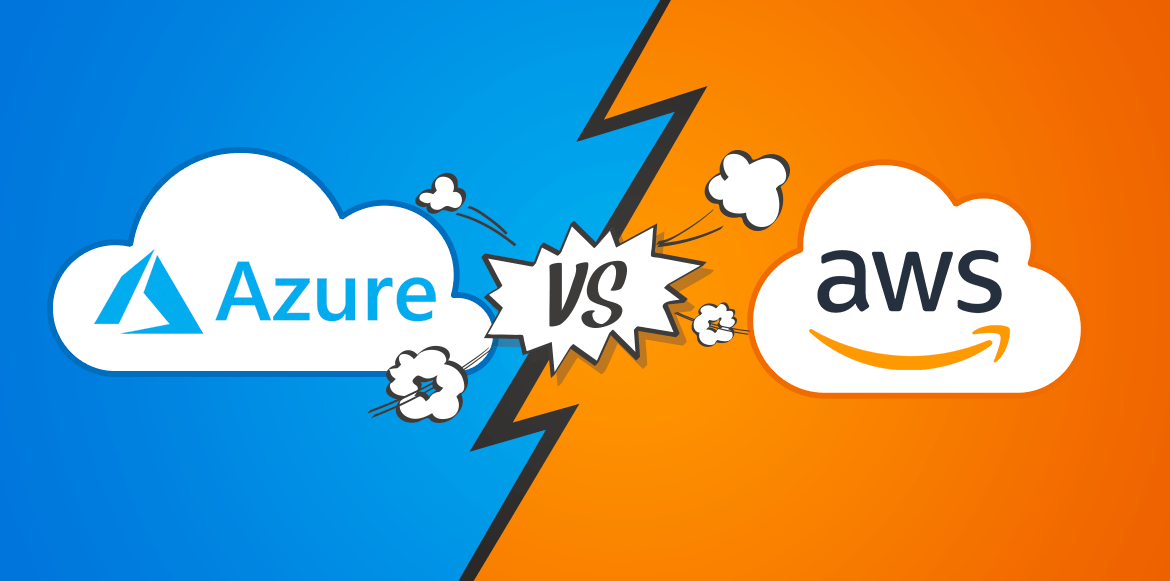AWS still stands as an industry leader. But recent headlines seem to suggest that Microsoft’s cloud platform is fast closing in, and it’s just a matter of time before it usurps Amazon from the first position.
Read on to find out the verisimilitude of this statement or if Azure is really catching up as publicized. Let’s start by saying that both AWS and Azure are excellent performers, with 99% equivalence across almost all use cases.
In other words, choosing between the two cloud platforms is a matter of business decision and the underlying requirements of your organization. For instance, if your organization is hunting for the best Platform as a Service (PaaS) or is looking for window integration, the Azure sticks out as a preferred choice of platform.
However, if your organization is in dire need of a strong Infrastructure as a Service (IaaS) or a platform with a diverse range of tools to use, then there’s no better option than AWS.
But that’s not where the differences end. You might want to read the rest of this article to find out how the two cloud service providers stack against each other:
Key Features
Here are the key features of the two platforms in quick highlights
So while AWS was initiated in 2006, Azure was first launched in 2010. This makes AWS older from Azure by four years.AWS holds 40 percent of the total market share, while Azure holds 30 percent of the market. So again, it’s safe to say AWS is popular than Azure by 10 percent.
AWS’s hybrid cloud is still a work in progress, while Azure excels in it.
AWS has extensive support for Linux ecosystem, while Azure is still working on setting up their Linux extension.
Lastly, AWS offers more flexibility on their licensing, while Azure is still playing catch up.
With the general comparison out of the way, let’s zone into the pricing comparison between the two cloud giants.
Pricing
For starters, both platforms offer a pay-as-you-go structure. However, AWS charges you on an hourly basis, while Azures charges you based on the minutes used. Also, if you’re interested in short term subscriptions, azure has a lot of flexibility on that. But as your architecture begins scaling up, Azure becomes costlier, thus making AWS a more suitable choice.
Computation Services
The next stop, while comparing the two platforms, would be on their computer parameters. That’s because computing services or computations are among the core service of cloud services. Come to think about it, that’s pretty much the reason it’s referred to as Cloud computing and not just cloud.
Speed is of the essence in the current world of cloud hosting. There’s always an urgent need for processing data, especially where the amount of data generated is of colossal amounts. In comes, computing services, which works to ensure that you’re able to process data in minutes and scale up with so much ease should there arise a need for it.
In which case, both AWS and Azure have an integrated system that automatically caters for this. While AWS boasts of services such as Elastic, EC2, AWS Lambda, and Elastic Beanstalk, Azure has a similar line of services including App Services, Azure Virtual Machine, Container Service, and Azure Functions.
From this, it’s safe to say that both services can go neck to neck when pitted against each other.
It’s a Wrap
As seen above, both of these cloud platforms show potent capabilities that somehow make it a bit difficult to single out a clear winner in this comparison. However, if you’re interested in a platform that offers more flexibility and additional features, then you’re better off with AWS; while Azure sticks out when it comes to Hybrid Cloud and integration with a stack of Microsoft products.








Comments